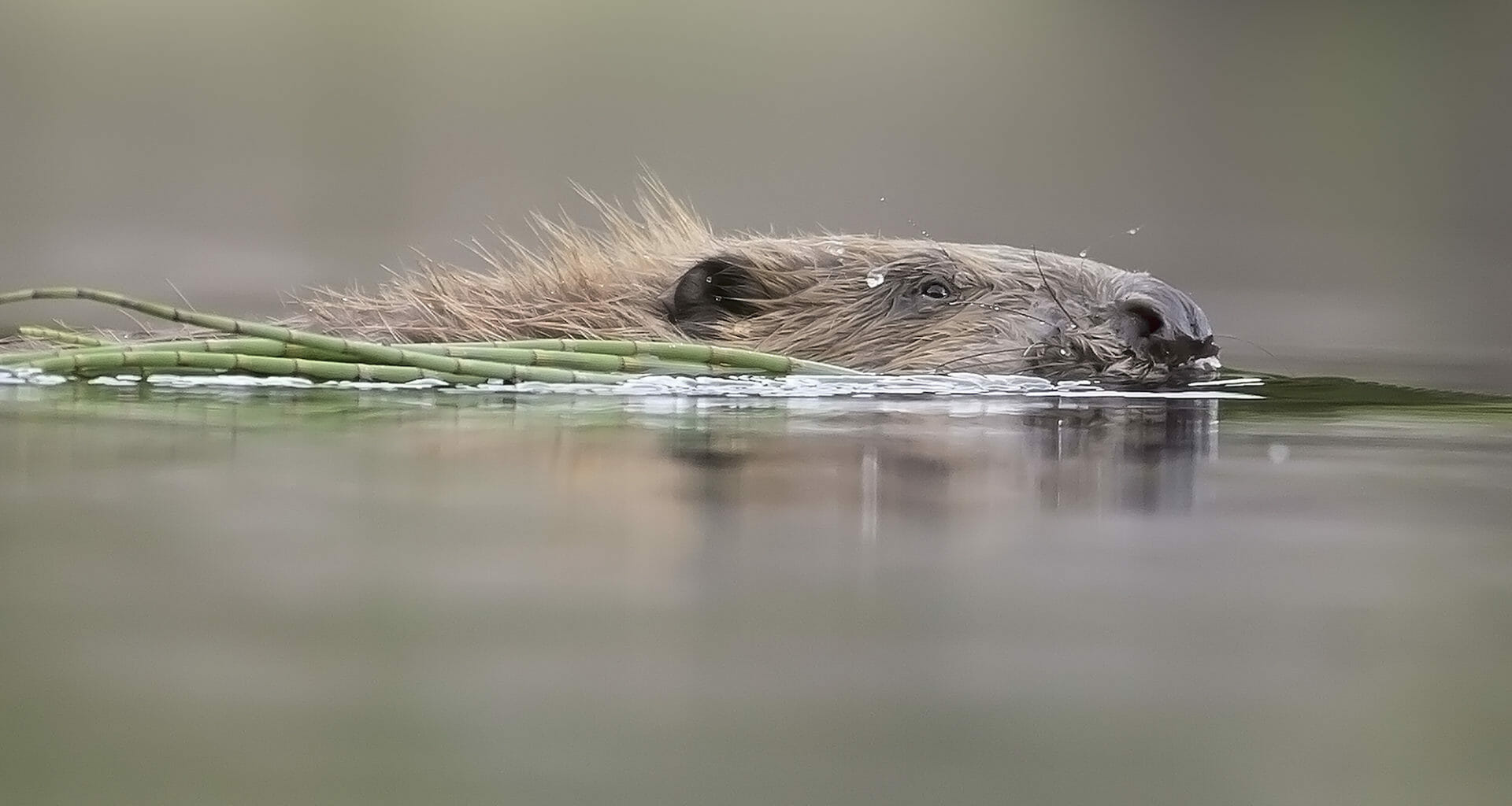The Scottish Government’s wildlife agency licensed the killing of 115 beavers in Tayside in 2020, sparking angry criticisms from campaigners.
NatureScot has released a long-awaited report on the management of wild beavers, which farmers blame for flooding and crop damage. The number killed over 12 months in 2020 compares to the 87 killed over eight months in 2019.
Wildlife campaigners condemned the killing as “ecologically incoherent and environmentally irresponsible”. They accused NatureScot of trying to “hide” a “waste of life”.
NatureScot has also published its latest survey of beavers which showed that the population had more than doubled in three years to over 1,000. Beavers have spread out from Tayside to Glen Isla in the north and Crianlarich to the west.
Beavers were hunted to extinction in Scotland in the 16th century. They were illegally or accidentally released in Tayside before 2006.
After prolonged arguments reported by The Ferret, the Scottish Government gave beavers legal protection in May 2019. Since then in order to kill them, land managers have had to obtain a licence from NatureScot.
Between May and December 2019 licences were issued permitting the killing of 87 beavers in Tayside. Now NatureScot has said that 35 licences were used by farmers and landowners in 2020 to shoot 115 beavers.
Most — 80 — were killed along the banks of the River Isla in Angus and Perthshire. Others were shot on the River Earn and on the Tay.
Licences also allowed the removal of 56 beaver dams in 2020. A further 31 beavers were trapped and moved to England.
NatureScot’s survey concluded that beavers were “in a rapid expansion phase” with their territories more than doubling to 251. This was “great news for nature”, according to the agency’s director of sustainable growth, Robbie Kernahan.
“Beavers play a vital role in creating and restoring wetlands where other species can thrive, reducing downstream flooding and improving water quality,” he said.
This is such a waste of life and opportunity when nature is in crisis.
Alan McDonnell, Trees for Life
The wildlife group, Trees for Life, described NatureScot’s announcements as “chilling”. It accused the government agency of not knowing the status of beavers when it began to issue licences to kill them.
“This led to the needless deaths of a fifth of Scotland’s known beaver population in 2019 alone. Shockingly, we now know a further 115 beavers were shot in 2020,” said the group’s conservation manager, Alan McDonnell.
“NatureScot has sat on this grim tally since December, refusing to confirm it until today’s bid to hide the figures behind a welcome turn of events for the overall beaver population. This is such a waste of life and opportunity when nature is in crisis.”
Trees for Life argued that beavers should be relocated around Scotland rather than being shot. In June 2021 it took NatureScot to court for allegedly allowing too many beavers to be killed.
The group argued that the killing was not a “genuine last resort” as beavers could be moved instead.
The allegation was contested by NatureScot, which insisted its approach was “robust and lawful” and that licences were only issued “if there is no other solution”. The court’s verdict is awaited.
The Scottish Wild Beaver Group pointed out that Scotland’s beaver population was still one of the smallest in Europe. “It’s both ecologically incoherent and environmentally irresponsible that Scottish ministers have permitted the killing of 115 beavers,” said the group’s James Nairne.
“Instead of renewing lethal control licenses at the behest of a tiny group of subsidised land owners, the government should be funding the translocation of this critically important species to suitable areas throughout Scotland.”
The Scottish animal campaigns charity, OneKind, was “very disappointed” at the increased number of beavers being killed. “There are landowners in Scotland who would welcome these incredible ecosystem engineers onto their land,” said the group’s Eve Massie.
“Yet the Scottish Government continues to refuse to translocate these animals in favour of lethal control. As a recently introduced protected native species, beavers should only be killed as an absolute last resort. Sadly, we doubt that this is the case.”
The Scottish Greens called the killings “unnecessary”, arguing that “population growth does not excuse the killing or exporting more than a tenth of the population last year”. The Scottish Wildlife Trust was “concerned that lethal control is being carried out routinely, rather than as a true last resort”.
It is vitally important that that licensed lethal control remains as a last resort.
Martin Kennedy, National Farmers Union in Scotland
The National Farmers Union in Scotland, however, praised NatureScot’s reports. They were “unequivocal evidence of a conservation and reintroduction success story,” said the union’s president, Martin Kennedy.
“A management framework that works in the interests of beavers and wider biodiversity, whilst limiting the damage to valuable agricultural land in particular, has been developed successfully.”
He added: “However, it is vitally important that where mitigation measures are not working, and significant agricultural damage continues to occur, that licensed lethal control remains as a last resort.”
NatureScot pointed out that in a “small number of cases” beavers could have “negative impacts” on farming. “We know they may cause severe problems in some areas, particularly for crops on prime agricultural land,” said the agency’s Robbie Kernahan.
“This is reflected in the number of cases where mitigation measures were needed, such as fencing and flow devices or dam removal, as well as in the number of beavers which had to be trapped and moved or controlled under licence this past year.”
The Ferret reported allegations that NatureScot had told farmers in 2019 that beavers were “good to eat and could be used for taxidermy”.
The Scottish Society for the Prevention of Cruelty to Animals accused the agency of encouraging a “culture of breach of regulation” which could promote the illegal killing of beavers in Tayside.
Cover image thanks to Scotland: The Big Picture. This story was updated at 16.25 on 10 August 2021 to add comments from the Scottish Greens and the Scottish Wildlife Trust.













